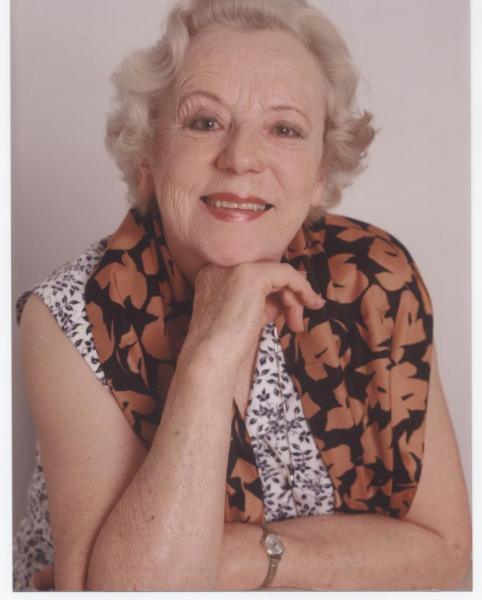International Cat Care is a charity established in 1958. Initially called the Feline Advisory Bureau (FAB), it exists because a group of very passionate cat lovers, led by Joan Judd, decided to do something about the dismal lack of information about cat health and welfare.
At the time, cats were dying from infectious diseases, were treated as small dogs by vets and the quality of boarding catteries and rescue facilities were appalling. For the last 60 years, International Cat Care has challenged attitudes to cats and has campaigned for better care at all levels.
Whether it is advancing veterinary feline medicine or improving owner knowledge of cats, raising standards of catteries, giving breeding advice, campaigning for medicines that are easier to give to cats, or making vet clinics more cat friendly, International Cat Care has driven up the standards of knowledge and treatment, and leads the world in cat health and welfare.
The charity now consists of a professional staff of 24, developing and disseminating knowledge on cats to vets, breeders, owners and anyone else with an interest in cats. Millions of cat owners access information online and vets and nurses worldwide use our training and resources to improve the care of cats. In this way, it is estimated that the charity touches the lives of over 25 million cats worldwide annually.
However, our work is far from done and International Cat Care is now taking an active and leading role in the welfare of unowned cats, where there is still so much to be done.
Our History
By Claire Bessant, International Cat Care Chief Executive
International Cat Care is a charity established in 1958. Initially called the Feline Advisory Bureau (FAB) it exists because one woman – Joan Judd – cared enough about cats to question conventional wisdom in the veterinary field, to fight inertia and prejudice and stand up and be counted.
During the 1920s relatively nothing of value was known about cat diseases. Everything was attributed to ‘distemper’, or to ‘poisoning’ if symptoms were more dramatic! Dog medicines were administered to cats with disastrous results. Veterinary surgeons interested in cat disease were not easy to locate. Feline medicine was greatly neglected, and little research was carried out.

Joan Judd founded the Feline Advisory Bureau in 1958
In the mid-1950s, cat lover and breeder Joan Judd decided that something had to be done to improve the care of cats. She stated:
‘It is not only a stray and hungry cat that commands our sympathy and our efforts. The house cat is very much part of the family and entitled to every consideration. Suffering cannot be relieved and prevented without investigation by experts and their findings made available to those whose work it is to treat sick animals. We shall not tolerate suffering’.
Joan believed that an organisation should be set up to deal with feline care which could also form a platform for the exchange of information and veterinary medical studies. Thus, in 1958, she founded the Feline Advisory Bureau (FAB).
At the very first meeting, Joan said:
‘This Feline Advisory Bureau sets out to assist people to solve their problems, and only through a CENTRAL body can the cat owner and breeder be sure of obtaining the latest information and advice and so keep abreast of the times and so ensure a safer healthier place for their cats. One of the important features of the Bureau will be the special funds for research into the infectious and other diseases of the cat’
FAB at first consisted only of dedicated volunteers. They were faced with a list of unknowns about cat health that was infinitely long, and an empty money pot, making the task ahead of them dizzyingly vast. And yet they persevered.
The first 10 years of the charity were spent just trying to unravel some of the many, many threads required to start understanding the diseases of cats. Advice was provided on things which could be found out, such as nutrition and husbandry, a few diseases and things known to poison cats. Despite many people calling for help – very few wanted to help in terms of providing the funds.
In 1967, there were finally enough funds to employ vet Charles Povey to undertake a project investigating a feline infectious disease at Bristol Veterinary School. However, a few years later in 1971, the charity reached crisis point. £2000 a year was needed to fund research and publish advice, but only £8 a month was being donated. Founder Joan Judd, due to ill-health, was seeking a successor as honorary secretary and it was certain that, without genuine active support, the organisation was doomed. Thanks to a vet called Mike Findlay who took on the honorary secretary post, and an honorary treasurer recruited, very reluctantly (he had no interest in cats and a daughter who was very allergic to fur!) from the local NatWest bank, the charity’s few resources were steered in the right direction, and FAB survived.
In 1973, the charity was getting back onto a good footing. During the next 22 years, it funded FAB Scholars, both generating and distributing huge amounts of information on cat health and welfare to other vets, and through them, to cat owners. The aim of the Scholarship was to produce feline ‘specialists’ and more ‘cat-orientated’ vets, as well as to investigate feline diseases and disseminate this information. The charity published a quarterly FAB Bulletin, which was aimed at both vets and owners – in the early days of the charity, this was typed, drawn and reproduced by hand! This was followed by the later FAB Journal.
It wasn’t just in the investigation of feline diseases that FAB was ahead of its time; it also led the way on other health and welfare issues. As early as the 1960s, FAB was advising neutering at around 4 months of age – the same recommendations other animal welfare organisations have begun to advocate, over 50 years later! Also in the 1960s, the Bureau was educating vets on handling cats with gentleness and not picking them up by the scruff. In 1967 FAB declared itself ‘utterly opposed to declawing’ and convinced the Governing Council of Cat Fancy (GCCF) to amend show rules so no cat which had been declawed could be shown. And even from its very early days, despite its close links with breeders, the charity was outspoken about breeding cats with inherited problems or for looks based on genetic abnormalities. Another major achievement of FAB was its work on boarding catteries – in the 1960s FAB noted, ‘The ignorance that exists concerning the provision of holiday accommodation for cats is almost unbelievable’. In 1964 it set up its own boarding cattery inspection scheme and gave approval to catteries which they felt were built and run properly. In 1967 FAB’s Boarding Cattery Information Service was started and a manual on management was developed.
Despite all the amazing work FAB was producing, money was still extremely tight for the charity. In 1983, the treasurer reported unpredictable fluctuations in income, but at last, money was received from a legacy which helped enormously. Lesley Pring was then chair of GCCF and pledged £1000 per year to the scholarship for 5 years; Pedigree Petfoods also gave £2500 towards it, which made a huge difference. In 1987, several legacies were left to FAB and the hand-to-mouth existence in finance was somewhat relieved. In the mid-1990s, a hotel owner and FAB member called Mr Budgen left a large residuary legacy. This was another turning point for the charity and shows the huge importance of legacies in helping us to continue our work.
It was at this time, that Claire Bessant who had been editing the FAB Journal for several years, took on the position of chief executive on a 2.5 day a week basis. It was then decided to move the office to Tisbury in Wiltshire, UK, and take on part-time staff. In the second part of the 1990s, the charity’s first website was developed, and all the information which had been available simply as printed advice sheets (which had to be sent out by post) became freely available to the world.
Since then it was onwards and upwards for the charity, launching its veterinary division the European Society of Feline Medicine (ESFM) – which soon became the International Society of Feline Medicine (ISFM) as we know it today – and its veterinary journal, the Journal of Feline Medicine and Surgery. It formed The Cat Group, a coalition of charities and other organisations that work with cats, in order to work collaboratively on a number of issues. In the new millennium, it held its first European conference on feline medicine, which is now run annually, as well as more recently an annual conference in Asia-Pacific. The ‘Cat Friendly Clinic’ programme was launched, to help reduce the stressfulness of visiting the vets for both cats and owners, as well as the ‘Easy to Give’ award, recognising medicines that are easy for owners to give to their cats. The ‘Cat Friendly’ award followed, recognising products that are beneficial to cat welfare. A free nurse membership was developed, offering vet nurses a free journal Feline Focus, as well as free webinars. A free magazine Intelligent Cat Care was launched, ensuring that cat owners and non-veterinary cat professionals were also receiving the latest developments in feline health, behaviour and welfare. The charity also began to fund international feline welfare and veterinary training projects all over the world and created a ‘Cat Welfare Award’ to acknowledge international efforts to bring a cohesive approach to cat welfare.
In 2008, then FAB chairman Andy Sparkes, who went on to be the charity’s Veterinary Director until 2018, commented, ‘FAB now occupies a pivotal position in feline welfare, supporting both cat owners and carers and the veterinary profession, and perhaps even more importantly, helping to bridge that divide.’
In 2013, FAB was rebranded as International Cat Care, in light of its role in feline medicine and welfare all over the world. Joan Judd, the charity’s founder and by then over 90 years old, was very supportive of this change, saying that this was how she imagined the charity could progress all those years ago. She died later that year, but we were so delighted that she had seen all of her hard work and struggle at the beginning come to fruition in helping millions of cats worldwide.
The charity now consists of a professional staff of 22, developing and disseminating knowledge on cats to vets, breeders, owners and anyone else with an interest in cats. Millions of cat owners access information online from icatcare.org, and vets and nurses worldwide use our training and resources to improve the care of cats. In this way, it is estimated that the charity touches the lives of over 25 million cats worldwide annually. Hopefully, Joan Judd would be pleased!
We would like to take this opportunity to thank everyone who continues to support our work towards our vision that all cats, owned and unowned, are treated with care, compassion and understanding.


